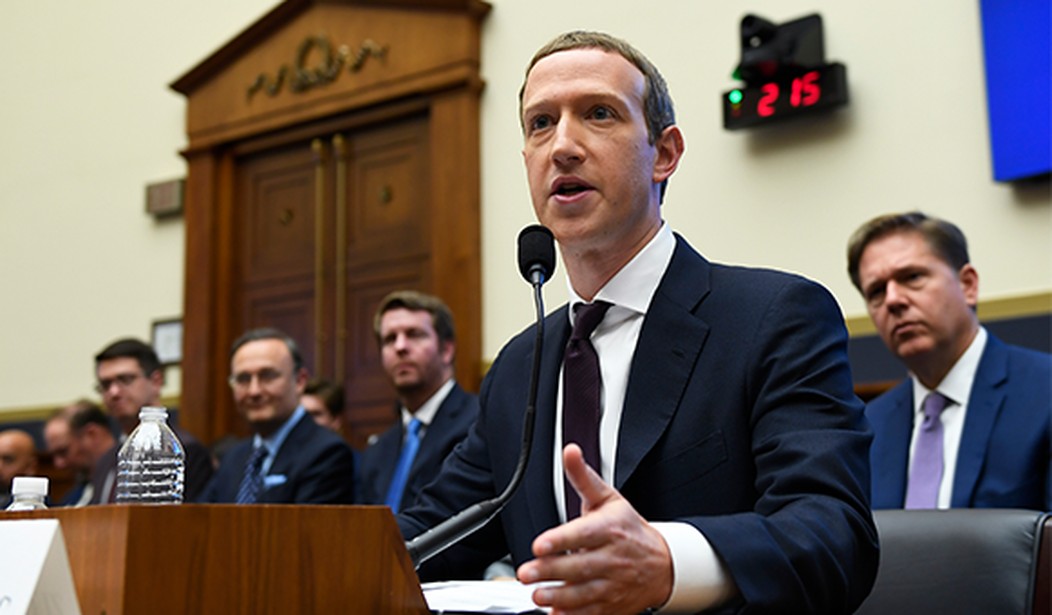Both Facebook and Twitter took action against a blockbuster New York Post story about Democratic nominee Joe Biden’s son Hunter shortly after publication. The move appears motivated by liberal bias and a desire to protect Biden, but there is likely more involved. Given recent history, I would wager that the Big Tech companies want to cover their butts, if you catch my drift.
So, what happened? The New York Post published a blockbuster story about a “smoking gun” email allegedly proving that then-Vice President Joe Biden’s son Hunter introduced the VP to an executive at the notoriously corrupt Ukrainian gas company Burisma — before Joe Biden pressured the Ukrainian president to fire a prosecutor looking into Burisma. The email appears to contradict Biden’s repeated insistence that he never discussed his son’s lucrative business deals.
The Post story is salacious and it remains unclear just how reliable this “smoking gun” really is, but the story has the potential to be explosive. It may turn the tables on the impeachment narrative against President Donald Trump just as the Robert Mueller report arguably turned the tables on the Trump-Russia collusion narrative.
Yet before the Big Tech move, this story may not have picked up much traction. Ironically, Facebook and Twitter breathed air into the story by attempting to suppress it.
Facebook announced that it was reducing the article’s distribution, even before any fact-check. It is truly astounding that Facebook would move against an article on the assumption that it was false, before a fact-check.
Twitter also locked people out of their accounts when they tried to share the article, even cracking down on White House Press Secretary Kayleigh McEnany.
Twitter CEO Jack Dorsey admitted that Twitter’s censorship of the article was “unacceptable.” He acknowledged that Twitter had blocked URL sharing via tweet or direct message “with zero context as to why we’re blocking.” The company later argued that the article violated its “Hacked Materials Policy” by including images that “include personal and private information — like email addresses and phone numbers — which violate our rules.”
This explanation appears rather shaky. Twitter did not crack down on The New York Times‘ story about President Trump’s tax returns, for example. Furthermore, if the violation of this policy were straightforward, why didn’t Twitter give this explanation from the get-go?
It seems Facebook and Twitter moved to suppress this story in order to help Joe Biden. But the companies’ motives may be more innocent than that. After Trump won the 2016 election, many blamed social media for failing to remove “misinformation.”
Big Tech employees have a long history of bankrolling Democrats and Democratic causes. In 2018, 96 percent of Google employee contributions went to Democrats, while 95 percent of Facebook employee cash went to Democrats, and Twitter workers gave 98.7 percent to Democrats.
A Project Veritas video showed that Google’s “fairness” project is intended to prevent another 2016.
Big Tech companies are not just afraid of President Trump winning reelection — they are terrified that he will win and that they will somehow be responsible. Yet under Section 230 of the Communications Decency Act, these companies enjoy immunity from liability for the content they host because they are not considered publishers. However, the kind of attack Facebook and Twitter levied against The New York Post article on Hunter Biden might convince Congress to revoke the liability protection in Section 230. President Trump responded to this attack by calling for a ban on Section 230.
Facebook and Twitter may have intended to just cover their butts in case Trump wins, but their attacks on this Hunter Biden story only drew attention to it — and raised Americans’ concerns about Big Tech censorship.
Tyler O’Neil is the author of Making Hate Pay: The Corruption of the Southern Poverty Law Center. Follow him on Twitter at @Tyler2ONeil.









